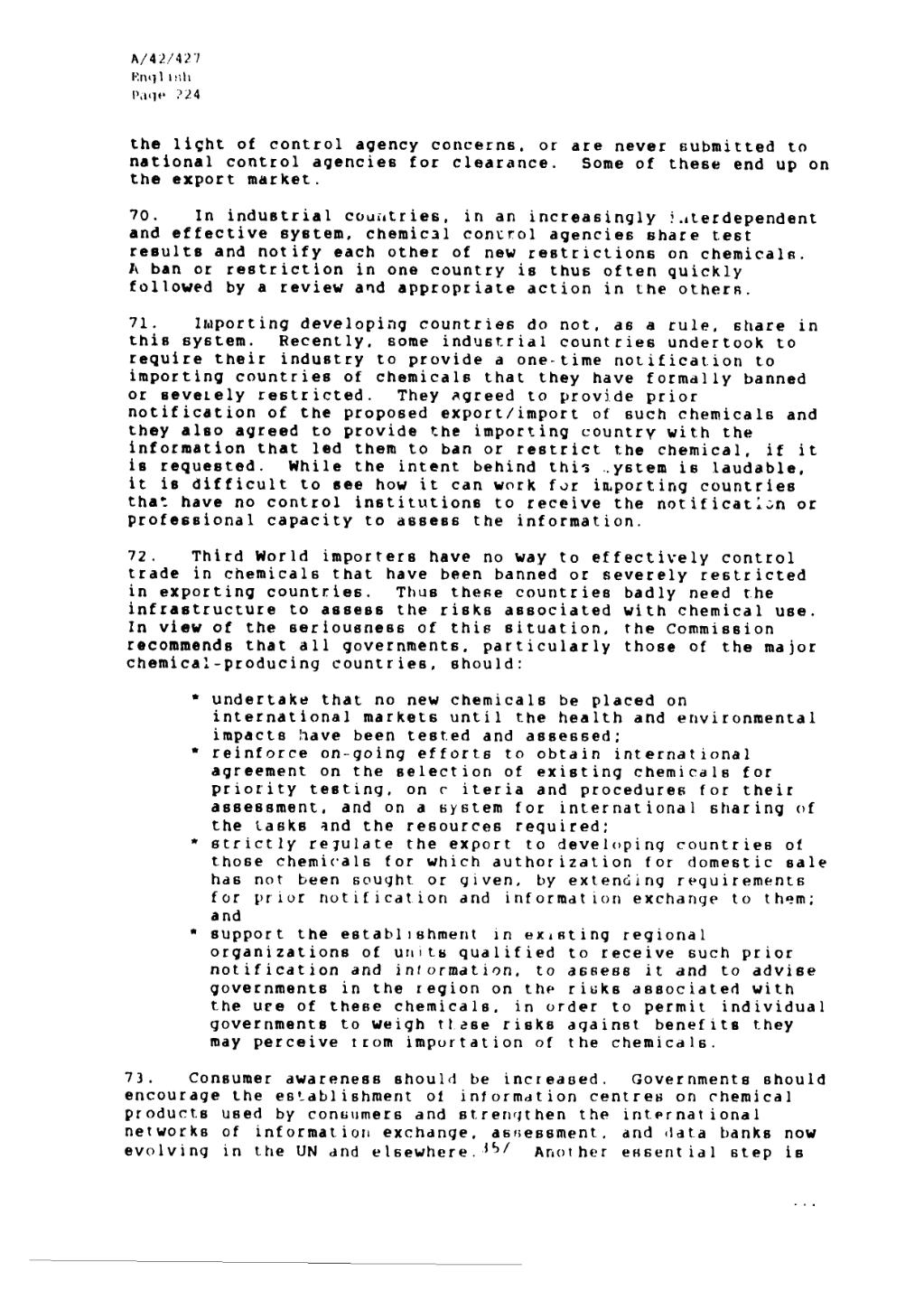A/42/427
English
Page 224
the light of control agency concerns. or are never submitted to national control agencies for clearance. Some of these end up on the export market.
70. In industrial countries, in an increasingly interdependent and effective system, chemical control agencies share test results and notify each other of new restrictions on chemicals. A ban or restriction in one country is thus often quickly followed by a review and appropriate action in the others.
71. Importing developing countries do not, as a rule, share in this system. Recently, some industrial countries undertook to require their industry to provide a one-time notification to importing countries of chemicals that they have formally banned or severely restricted. They agreed to provide prior notification of the proposed export/import of such chemicals and they also agreed to provide the importing country with the information that led them to ban or restrict the chemical, if it is requested. While the intent behind this system is laudable, it is difficult to see how it can work for importing countries that have no control institutions to receive the notification or professional capacity to assess the information.
72. Third World importers have no way to effectively control trade in chemicals that have been banned or severely restricted in exporting countries. Thus these countries badly need the infrastructure to assess the risks associated with chemical use. In view of the seriousness of this situation, the Commission recommends that all governments, particularly those of the major chemical-producing countries, should:
- undertake that no new chemicals be placed on international markets until the health and environmental impacts have been tested and assessed;
- reinforce on-going efforts to obtain international agreement on the selection of existing chemicals for priority testing, on criteria and procedures for their assessment, and on a system for international sharing of the tasks and the resources required:
- strictly regulate the export to developing countries of those chemicals (or which authorization or domestic sale
has not been sought or given. by extending requirements for prior notification and information exchange to them: and
- support the establishment in existing regional organizations of units qualified to receive such prior notification and information, to assess it and to advise governments in the legion on the risks associated with the use of these chemicals, in order to permit individual governments to weigh the risks against benefits they may perceive from importation of he chemicals.
73. Consumer awareness should be increased. Governments should encourage the establishment of information centres on chemical products used by consumers and strengthen the international networks of information exchange, assessment, and data banks now evolving in the UN and elsewhere.[1] Another essential step is
- ↑ Notable examples include the International Programme on Chemical Safety (UNEP/WHO/ILO), International Register of Potentially Toxic Chemicals (UNEP), International Agency for Research on Cancer (WHO), and the UN's 'Consolidated List', op. cit.
